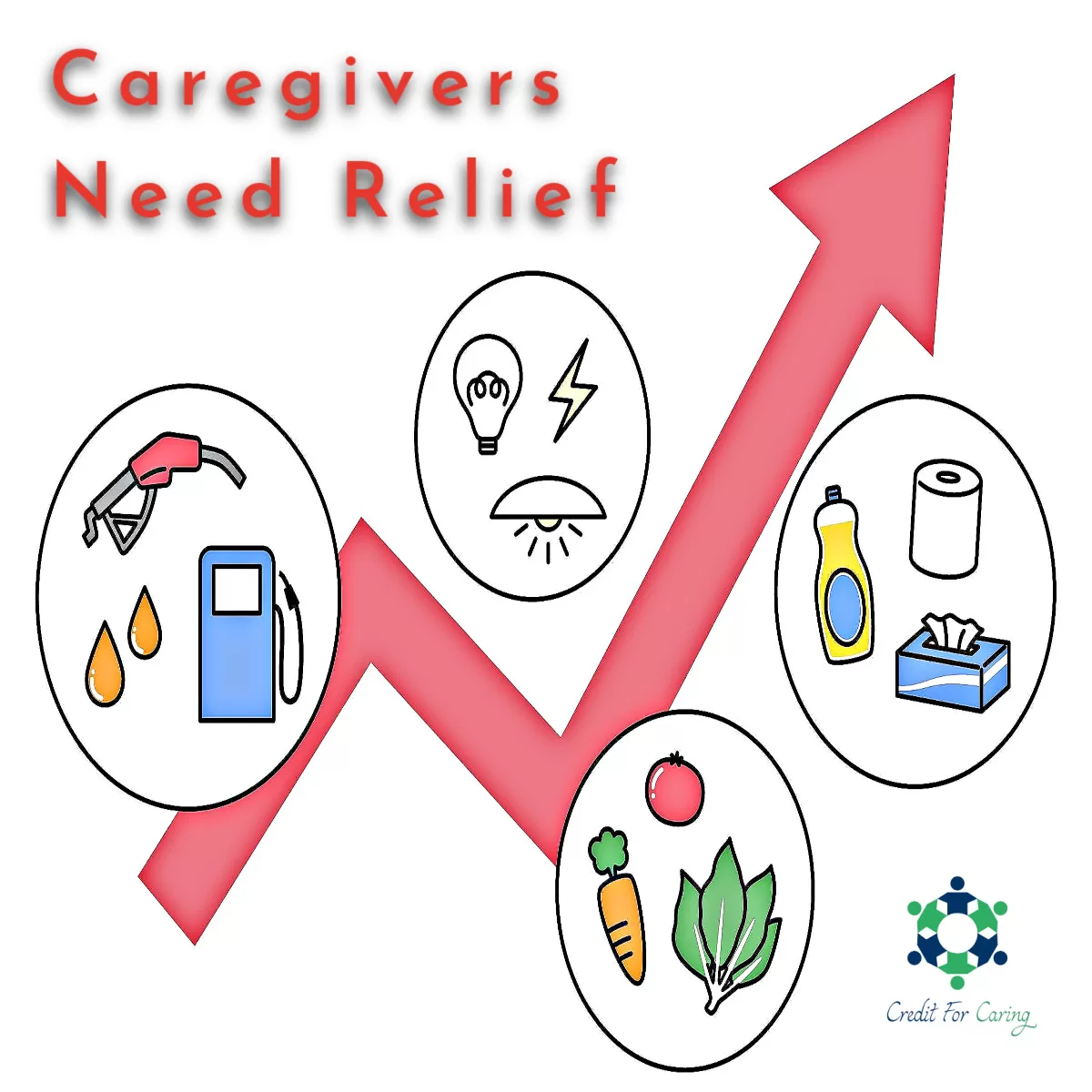
Unpaid Family Caregivers Hit Hard by Inflation!
The USA has a long, proud history of supporting the creating and expansion of the American Family. No politician, who wants to be re-elected, would ever vote against the child tax credit. The Department of Agriculture calculates the cost of a two-parent, two-child family will spend an average of $286,000 in 2022 from birth to 17 years of age.
Let’s look at the other end of the life span. According to AARP research, a retiree previously making $50,000 per year will need 80% of that in retirement. With an average of 18 years of retirement is approximately $288,000 of savings for expenses including Medicare co-payments and deductibles. Today’s inflation rate is compounding an already difficult situation. Here are some important economic sectors hit hard by rising cost and demands today.
US Bureau of Labor Statistics Inflation Report, June 2022
- The annual inflation rate in the US accelerated to 9.1% in June of 2022, the highest since November of 1981, from 8.6% in May and above market forecasts of 8.8%.
- Energy prices rose 41.6%, the most since April 1980, boosted by gasoline (59.9%, the largest increase since March 1980), fuel oil (98.5%), electricity (13.7%, the largest increase since April 2006), and natural gas (38.4%, the largest increase since October 2005).
- Food costs surged 10.4%, the most since February 1981, with food at home jumping 12.2%, the most since April 1979.
- Prices also increased significantly for shelter (5.6%, the most since February 1991), household furnishings and operations (9.5%), new vehicles (11.4%), used cars and trucks (1.7%), and airline fares (34.1%).
- Core CPI which excludes food and energy increased 5.9%, slightly below 6% in May, but above forecasts of 5.7%. Trading Economics
The Credit for Caring Act
A bill to amend the Internal Revenue Code of 1986 to provide a nonrefundable credit for working family caregivers was introduced by Senators Ernst, Warren, Bennet, and Capito last year. Representative Linda Sanchez is the sponsor of the House version would provide much-needed financial relief.
The Act would create up to $5,000 tax credit for unpaid family caregivers. It would help offset the out-of-pocket costs, such as home safety modifications, respite care, home care, transportation, smart technologies, and more. This bill would help eligible working family caregivers caring for loved ones of all ages, regardless of whether they live with their loved one or if their loved one is a dependent.

Contact Your Legislators
Parents and Caregivers Both Deserve a Tax Credit
The numbers are staggering. Caregivers provide about four hundred and seventy-seven billion dollars annually in unpaid care to their loved ones. Care is provided for people of all ages whether it is a terminally ill child, a parent, or other vulnerable family members. Today’s caregivers take on the physical, emotional, and financial challenges which greatly increased during the pandemic. Caregiving can be costly both in terms of out-of-pocket expenses paid to assist their loved ones and potential income and retirement savings foregone. The support provided by family caregivers also helps save USA taxpayer dollars by assisting in delaying or preventing expensive nursing home care and unnecessary hospital stays. On average, AARP reports caregivers to spend seven thousand dollars from the family budget.
Looking to Future Generations is No longer the Answer
Passing this tax code change is urgent as the size and composition of the American family continue to change. This issue. impacts every generation as children are caring for parents in record numbers. In fact, one-quarter of all caregivers are Millennials. How can we justify the burden we are heaping on our youngest generations?
We are at the tip of the iceberg here. With each passing decade, we have more family caregivers who have spent their own nest egg on caring for the last resulting in an even more impoverished generation that now relies on younger families to support their retirement. This is unsustainable.



